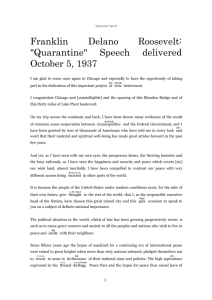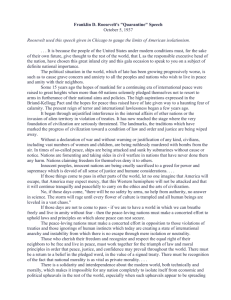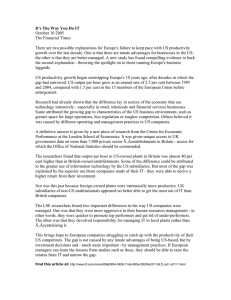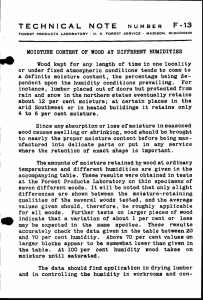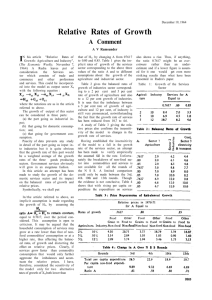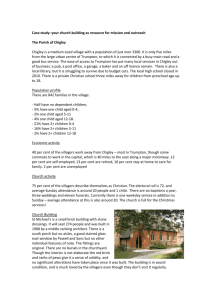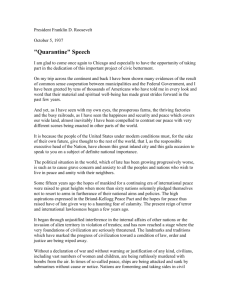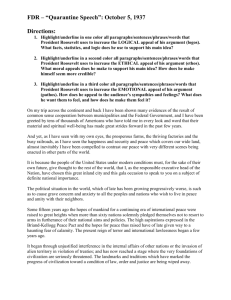Franklin D. Roosevelt, “Quarantine Speech” (October 1937) The
advertisement
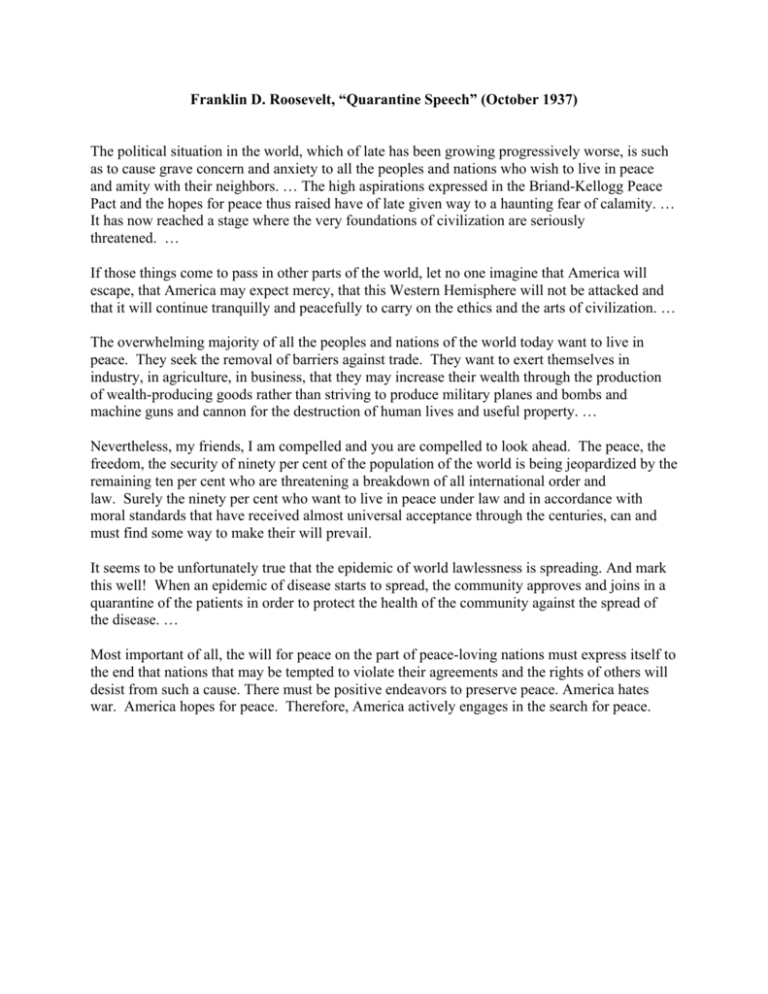
Franklin D. Roosevelt, “Quarantine Speech” (October 1937) The political situation in the world, which of late has been growing progressively worse, is such as to cause grave concern and anxiety to all the peoples and nations who wish to live in peace and amity with their neighbors. … The high aspirations expressed in the Briand-Kellogg Peace Pact and the hopes for peace thus raised have of late given way to a haunting fear of calamity. … It has now reached a stage where the very foundations of civilization are seriously threatened. … If those things come to pass in other parts of the world, let no one imagine that America will escape, that America may expect mercy, that this Western Hemisphere will not be attacked and that it will continue tranquilly and peacefully to carry on the ethics and the arts of civilization. … The overwhelming majority of all the peoples and nations of the world today want to live in peace. They seek the removal of barriers against trade. They want to exert themselves in industry, in agriculture, in business, that they may increase their wealth through the production of wealth-producing goods rather than striving to produce military planes and bombs and machine guns and cannon for the destruction of human lives and useful property. … Nevertheless, my friends, I am compelled and you are compelled to look ahead. The peace, the freedom, the security of ninety per cent of the population of the world is being jeopardized by the remaining ten per cent who are threatening a breakdown of all international order and law. Surely the ninety per cent who want to live in peace under law and in accordance with moral standards that have received almost universal acceptance through the centuries, can and must find some way to make their will prevail. It seems to be unfortunately true that the epidemic of world lawlessness is spreading. And mark this well! When an epidemic of disease starts to spread, the community approves and joins in a quarantine of the patients in order to protect the health of the community against the spread of the disease. … Most important of all, the will for peace on the part of peace-loving nations must express itself to the end that nations that may be tempted to violate their agreements and the rights of others will desist from such a cause. There must be positive endeavors to preserve peace. America hates war. America hopes for peace. Therefore, America actively engages in the search for peace.
